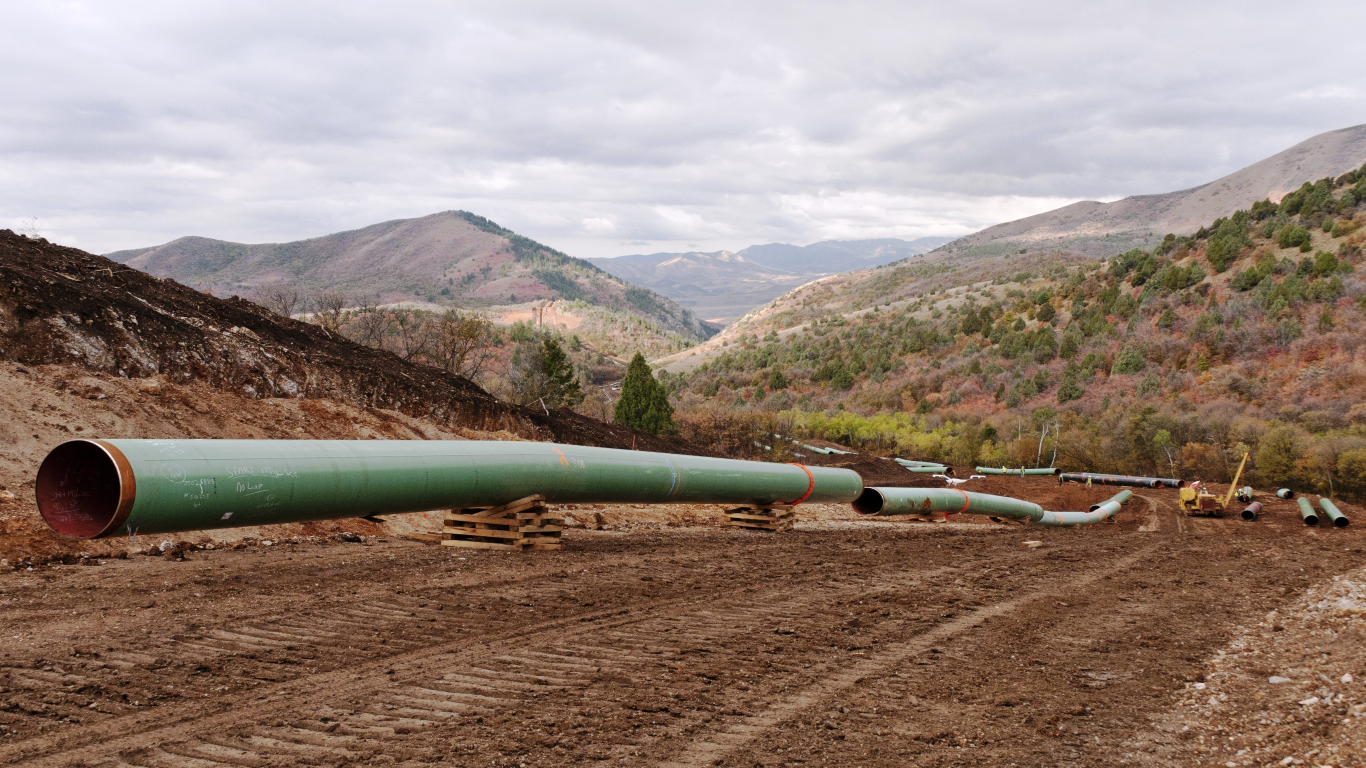Energy
Canadian Court Halts Work on Trans Mountain Pipeline as Kinder Morgan Gets Paid

Published:
Last Updated:

Canada’s Federal Appeals Court on Thursday revoked regulatory approval for the Trans Mountain Pipeline System that Kinder Morgan Inc.’s (NYSE: KMI) Canadian subsidiary had agreed to sell to the country’s federal government for C$4.5 billion (about $3.5 billion). At virtually the same moment, Kinder Morgan shareholders voted to accept the deal between the government and the company, which then closed Friday morning.
Canada’s finance minister, Bill Morneau, said that government is better able to manage the risks to completion of the pipeline expansion and that it still expects to sell the project to a private-sector buyer.
The unanimous ruling of the three-judge panel faulted the government for failing adequately to consult with indigenous groups affected by the pipeline project and relied on an environmental study that did not consider the effects of increased tanker traffic to haul the oil to market from a location near Vancouver, British Columbia.
The court’s ruling responded to lawsuits filed by local governments in British Columbia as well as indigenous and environmental groups. Maureen Thomas, chief of the Tsleil-Waututh Nation, said that the rejection of the construction permits is “a big win for everyone who loves this coast and this inlet.”
Analyst Ian Gillies of GMP First Energy told The Wall Street Journal that the court’s decision “is a material negative, if not a death blow” to the expansion of the Trans Mountain Pipeline. Kinder Morgan had restarted work on the pipeline last week but has stopped following the court ruling.
Kinder Morgan acquired the Trans Mountain system in 2005 when it purchased Canadian pipeline company Terasen for $5.6 billion. In addition to the 710-mile Trans Mountain system that then had a capacity of 225,000 barrels a day of crude oil transportation from Alberta to the coast of British Columbia, Kinder Morgan acquired more than 2,200 miles of Terasen pipelines along with 27,000 miles of natural gas distribution lines and 1.1 million natural gas customers.
In 2007, Kinder Morgan expanded the Trans Mountain’s capacity to 300,000 barrels a day and announced the now-halted expansion to 890,000 barrels a day at the same time. The company set the cost of the expansion at $7.4 billion.
The pipeline expansion was begun to move more crude oil out of western Alberta’s oil sands region to the west coast and from there on to international markets. A proposed expansion to an Enbridge expansion of its Line 3 pipeline system from the oil sands to an outlet on Canada’s east coast is also being challenged by indigenous groups.
The third project designed to transport crude from Alberta is TransCanada’s Keystone XL pipeline to the U.S. Gulf Coast. Last month the U.S. State Department ruled that a draft environmental assessment of an alternate route for the pipeline through Nebraska would not do major damage to either the region’s water or wildlife. Earlier this month, a federal district judge in Montana rejected State Department arguments and ordered a supplemental environmental impact statement on the revised route.
The good news for Kinder Morgan stockholders is that the Trans Mountain Pipeline expansion is now someone else’s problem. The bad news is that the company’s contract to complete the work is on hold, perhaps permanently.
Kinder Morgan stock traded down nearly 1% just before noon on Friday, at $17.61 in a 52-week range of $14.69 to $19.85. The consensus price target on the stock is $21.33.
The thought of burdening your family with a financial disaster is most Americans’ nightmare. However, recent studies show that over 100 million Americans still don’t have proper life insurance in the event they pass away.
Life insurance can bring peace of mind – ensuring your loved ones are safeguarded against unforeseen expenses and debts. With premiums often lower than expected and a variety of plans tailored to different life stages and health conditions, securing a policy is more accessible than ever.
A quick, no-obligation quote can provide valuable insight into what’s available and what might best suit your family’s needs. Life insurance is a simple step you can take today to help secure peace of mind for your loved ones tomorrow.
Click here to learn how to get a quote in just a few minutes.
Thank you for reading! Have some feedback for us?
Contact the 24/7 Wall St. editorial team.